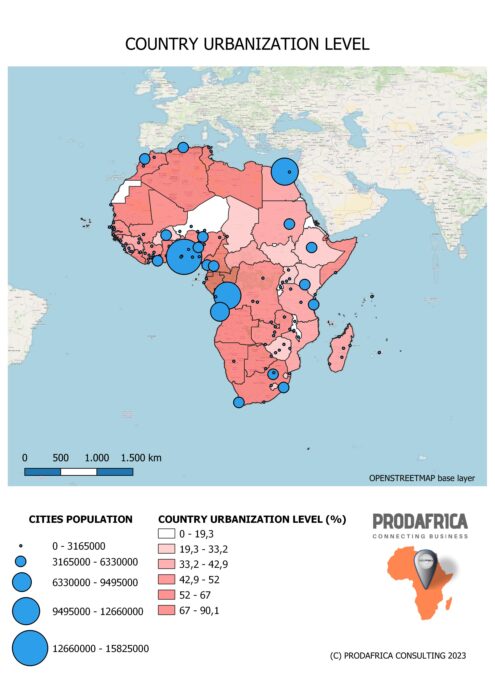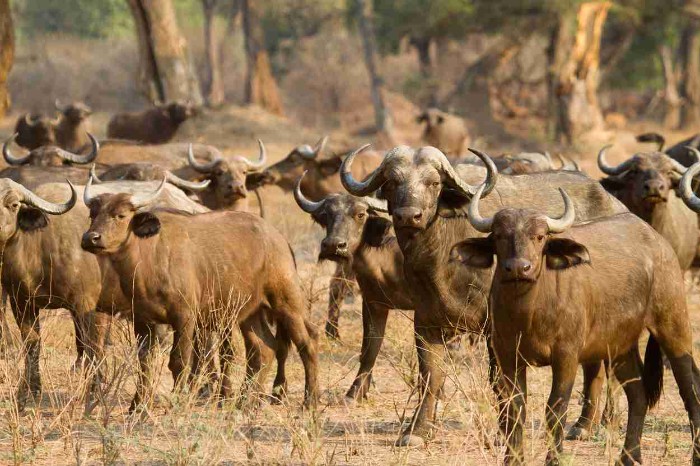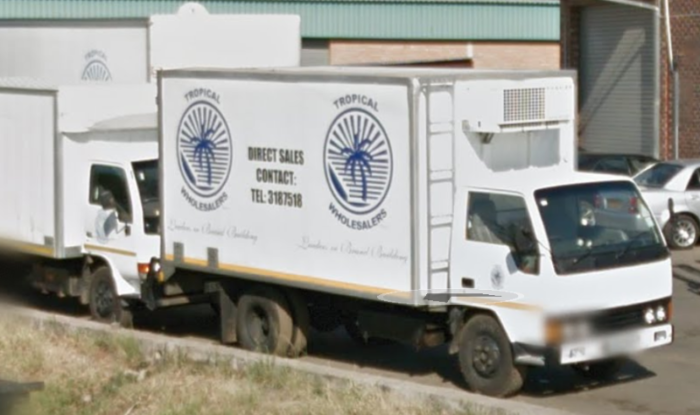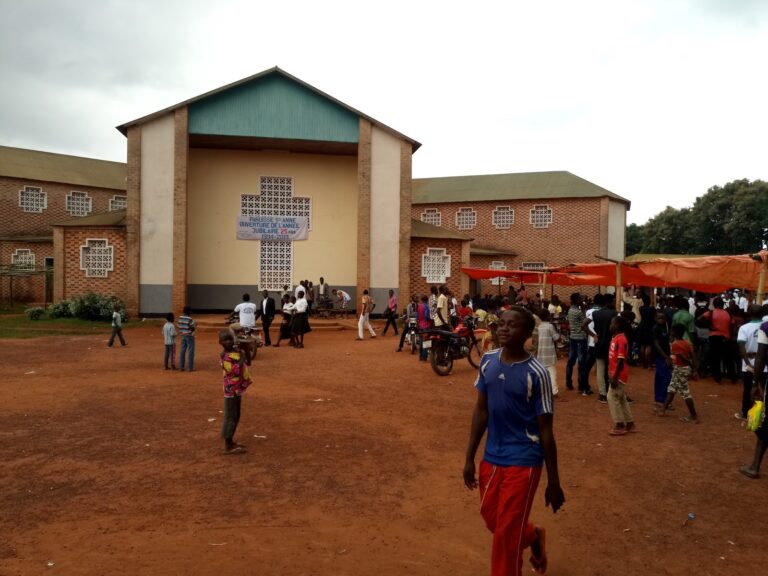Urbanization is the process by which a society transforms from a primarily rural, agrarian society to one that is more urban and industrialized. In Africa, this process has been occurring at a rapid pace, with many of the continent’s largest cities experiencing significant growth in recent years. However, the level of urbanization in Africa still lags behind that of other regions, and there are many challenges that need to be addressed in order to ensure that this process is sustainable and benefits all Africans.
According to the United Nations, Africa is currently the least urbanized region in the world, with just over 40% of its population living in urban areas. This is in stark contrast to other regions, such as Europe and North America, where more than 80% of the population is urban. However, the level of urbanization in Africa is increasing rapidly, with the urban population expected to double by 2050.
One of the main drivers of urbanization in Africa is migration from rural areas to cities in search of better economic opportunities. Many of the continent’s largest cities, such as Lagos, Kinshasa, and Cairo, have grown rapidly in recent years, with populations in the tens of millions. However, this rapid growth has also led to a number of challenges, including inadequate infrastructure, housing shortages, and environmental degradation.
One of the key challenges facing urbanization in Africa is the lack of adequate infrastructure. Many cities lack basic services such as clean water, sanitation, and electricity, which can have serious health consequences for residents. In addition, poor transportation infrastructure can make it difficult for people to access education and employment opportunities. To address these challenges, governments in Africa need to invest in infrastructure and work to improve the delivery of basic services.
Another challenge facing urbanization in Africa is the lack of affordable housing. Rapid population growth in cities has led to housing shortages and rising rents, making it difficult for many people to find adequate housing. This has led to the development of informal settlements, where residents often lack access to basic services and live in overcrowded conditions. To address this challenge, governments in Africa need to work to increase the supply of affordable housing and provide support for those living in informal settlements.
Environmental degradation is another challenge facing urbanization in Africa. As cities grow, they often encroach on natural habitats and lead to deforestation and loss of biodiversity. In addition, the rapid growth of cities can lead to increased air and water pollution, which can have serious health consequences for residents. To address this challenge, governments in Africa need to work to promote sustainable development and invest in renewable energy sources.
In conclusion, the level of urbanization in Africa is increasing rapidly, but there are still many challenges that need to be addressed. Governments in Africa need to invest in infrastructure and basic services, increase the supply of affordable housing, and promote sustainable development to ensure that this process is sustainable and benefits all Africans. With the right policies and investments, urbanization can be a positive force for economic growth and development in Africa.

The five largest metropolis in Africa
Africa is a continent with a large and rapidly growing population, and its cities are some of the fastest-growing in the world. The continent is home to many large metropolises, with the five largest being Cairo, Lagos, Kinshasa, Johannesburg, and Luanda.
Cairo, the capital of Egypt, is the largest metropolis in Africa, with an estimated population of over 20 million people. Located on the banks of the Nile River, the city is a major economic and cultural hub in North Africa. It is home to many historical landmarks, including the Pyramids of Giza, as well as modern attractions such as the Cairo Opera House and the Cairo Tower.
Lagos is the second-largest metropolis in Africa, with an estimated population of over 21 million people. Located in the southwestern part of Nigeria, Lagos is a major economic hub, known for its vibrant and diverse economy, which is centered around trade, manufacturing, and services. The city is also a major player in the African tech scene, with a thriving startup ecosystem.
Kinshasa is the capital of the Democratic Republic of Congo and the third-largest metropolis in Africa, with an estimated population of over 15 million people. Located on the banks of the Congo River, the city is a major economic and cultural center in Central Africa. It is known for its vibrant music scene, including the popular Congolese music genre known as soukous.
Johannesburg is the largest city in South Africa and the fourth-largest metropolis in Africa, with an estimated population of over 9 million people. It is the economic hub of South Africa, and is known for its modern skyline, cultural diversity, and historical landmarks such as the Apartheid Museum and Constitution Hill.
Luanda is the capital of Angola and the fifth-largest metropolis in Africa, with an estimated population of over 7 million people. Located on the coast of the Atlantic Ocean, the city is a major economic center in southern Africa, known for its oil industry and diamond trade. It is also a cultural hub, with a thriving music scene and many historical landmarks, including the 16th-century Fortress of São Miguel.
The five largest metropolises in Africa are diverse in terms of their geography, culture, and economic focus. Despite their differences, these cities share many common challenges, including inadequate infrastructure, traffic congestion, and a lack of affordable housing. With the right policies and investments, these cities have the potential to become even more prosperous and livable, contributing to Africa’s economic growth and development.

Team ProdAfrica
team@prodafrica.com




